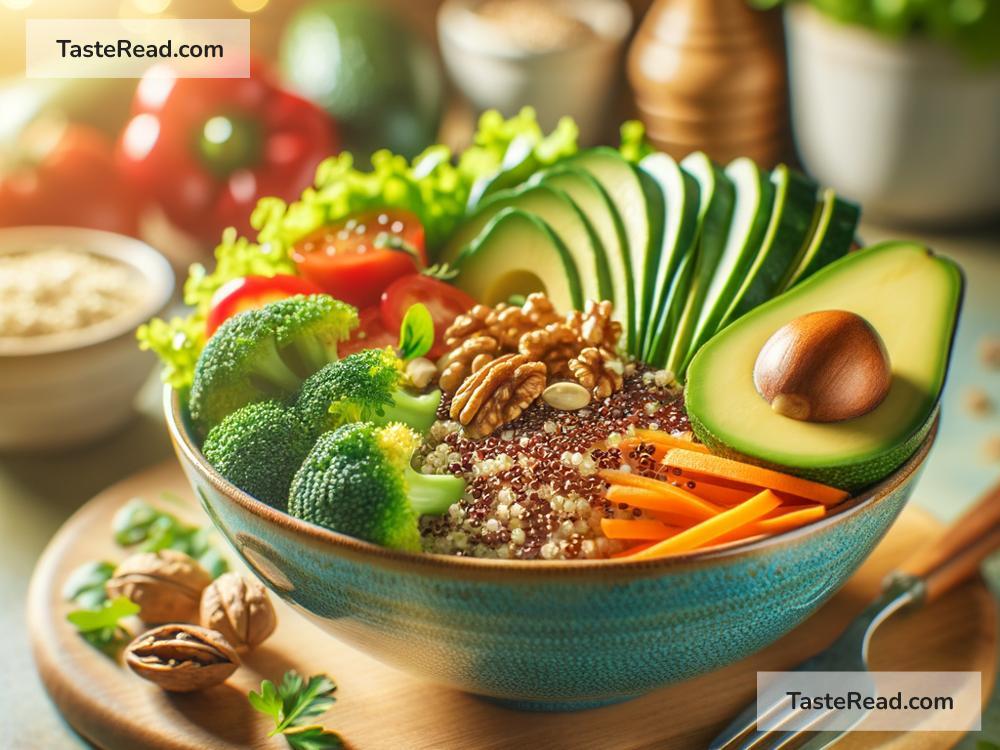The Benefits of a Balanced Diet for Emotional Well-Being: Supporting Mental Health
Did you know that what you eat can affect not only your physical health but also your mood and mental well-being? While most people understand the importance of eating healthy to stay active and fit, not everyone realizes that food can also play a big role in how you feel emotionally. A balanced diet doesn’t just keep your body strong—it also helps support your brain, reduce stress, and improve your mental health.
In this article, we’ll explore how a balanced diet can benefit you emotionally, and why eating the right foods is essential for living a happier and healthier life.
What is a Balanced Diet?
A balanced diet means eating a mix of different foods that provide all the essential nutrients your body needs to function properly. This includes:
- Carbohydrates, proteins, and fats for energy and growth
- Vitamins and minerals to support bodily functions
- Fiber to help with digestion
- Plenty of water to stay hydrated
When your diet includes all of these elements in the right proportions, your body works better—and so does your mind.
How Food Affects Your Brain and Mood
The brain is like the control center of your body, and it needs the right nutrients to stay in good shape. Certain foods can help improve how your brain functions, how you feel, and even how you respond to stress.
For example:
– Foods rich in omega-3 fatty acids (like salmon, walnuts, and flaxseeds) can boost brain health and reduce feelings of depression.
– Whole grains (like oatmeal, brown rice, and whole wheat bread) provide a steady stream of energy that helps you feel more mentally stable throughout the day.
– Fruits and vegetables contain antioxidants, which help protect your brain from damage caused by stress and aging.
On the flip side, eating too much junk food, sugary snacks, or processed meals can have a negative impact on your mood. These “empty calorie” foods may give you a quick burst of energy but can leave you feeling tired, irritable, or anxious shortly after.
The Connection Between Gut Health and Emotional Well-Being
Interestingly, your gut health is closely tied to your mental health. Your gut contains trillions of bacteria, also known as the “gut microbiome.” These bacteria help digest food, support your immune system, and produce chemicals like serotonin—a neurotransmitter that influences mood and happiness.
Eating foods that are good for your gut can promote mental well-being. Probiotic foods like yogurt, kefir, and fermented vegetables (such as kimchi and sauerkraut) help maintain a healthy gut microbiome. Similarly, fiber-rich foods like beans, lentils, and leafy greens feed the gut bacteria, keeping them healthy.
On the other hand, a poor diet can disrupt your gut microbiome, leading to inflammation in the body. Inflammation has been linked to depression and anxiety, emphasizing the importance of gut health for emotional balance.
How a Balanced Diet Helps with Stress
Stress is something we all face from time to time, but your diet can make a big difference in how well you handle it. Certain foods can help reduce the negative effects of stress on your body and mind.
For example:
– Magnesium-rich foods like bananas, avocados, and dark chocolate can help relax your muscles and lower stress levels.
– Vitamin C (found in oranges, strawberries, and bell peppers) reduces cortisol, the stress hormone in your body.
– Drinking enough water keeps you hydrated and prevents fatigue and headaches associated with stress.
When your body gets the right fuel, it’s easier to stay calm and focused, even during tough times.
Foods That Support Brain Function
A healthy brain means a happy, balanced mood. Including brain-supporting foods in your meals can help improve focus, memory, and emotional resilience. Some great options include:
- Leafy greens like spinach and kale, which contain nutrients like folate and vitamin K that are linked to better brain health.
- Berries like blueberries and raspberries, packed with antioxidants that protect the brain from damage.
- Eggs, which are rich in choline, a nutrient that supports memory and learning.
Small changes to your diet—like swapping chips for trail mix or soda for green tea—can make a big difference in your emotional well-being.
Practical Tips for Eating a Balanced Diet
Balancing your diet doesn’t mean you have to give up your favorite foods. It’s all about adding nutritious choices to your meals and snacks. Here are some simple tips to get started:
- Plan your meals ahead of time. When you have healthy options ready, you’re less likely to grab fast food or unhealthy snacks.
- Include a variety of colors on your plate. This ensures you’re getting a range of nutrients from fruits and vegetables.
- Don’t skip meals. Regular eating helps stabilize your blood sugar, which can prevent mood swings and irritability.
- Moderation is key. Treat yourself occasionally, but aim for balance overall.
Final Thoughts
Your emotional health is closely linked to your physical health, and nutrition is at the heart of it all. A balanced diet supports your mental well-being by fueling your brain, improving your mood, and helping you handle stress more easily. By making smarter food choices and being mindful of what you eat, you can take active steps toward feeling your best—not just physically but also emotionally.
So, next time you’re deciding what to eat, remember that healthy food isn’t just good for your body—it’s also good for your mind. Make your meals colorful, fresh, and balanced, and watch how much of a difference it makes in your overall well-being!


